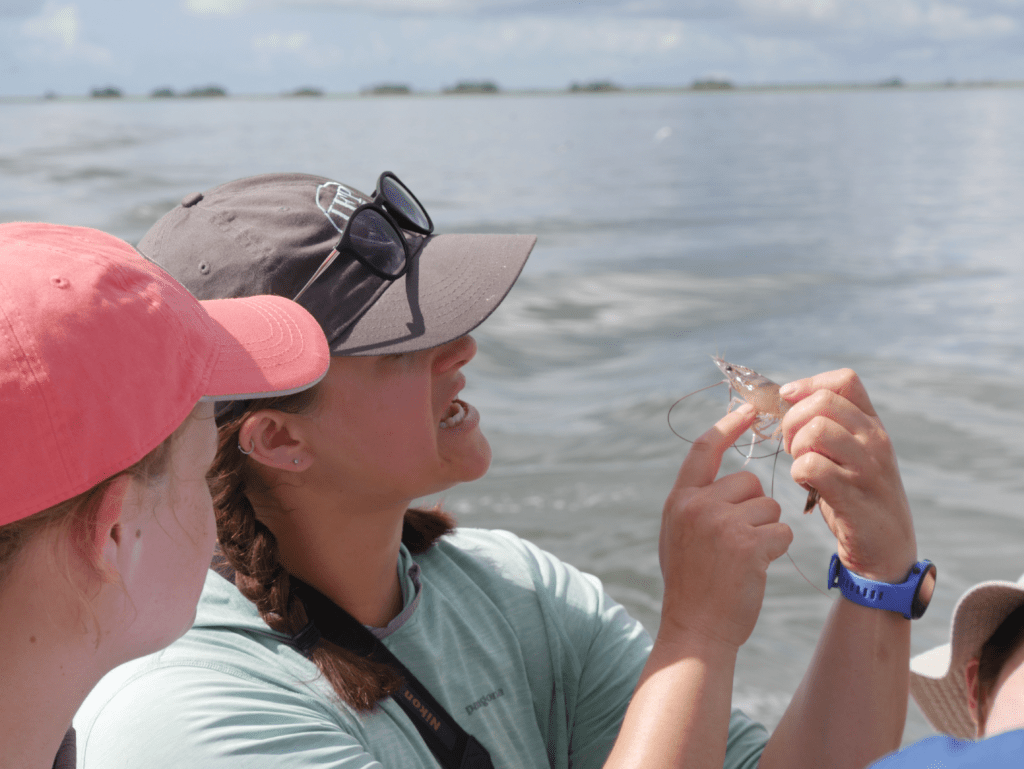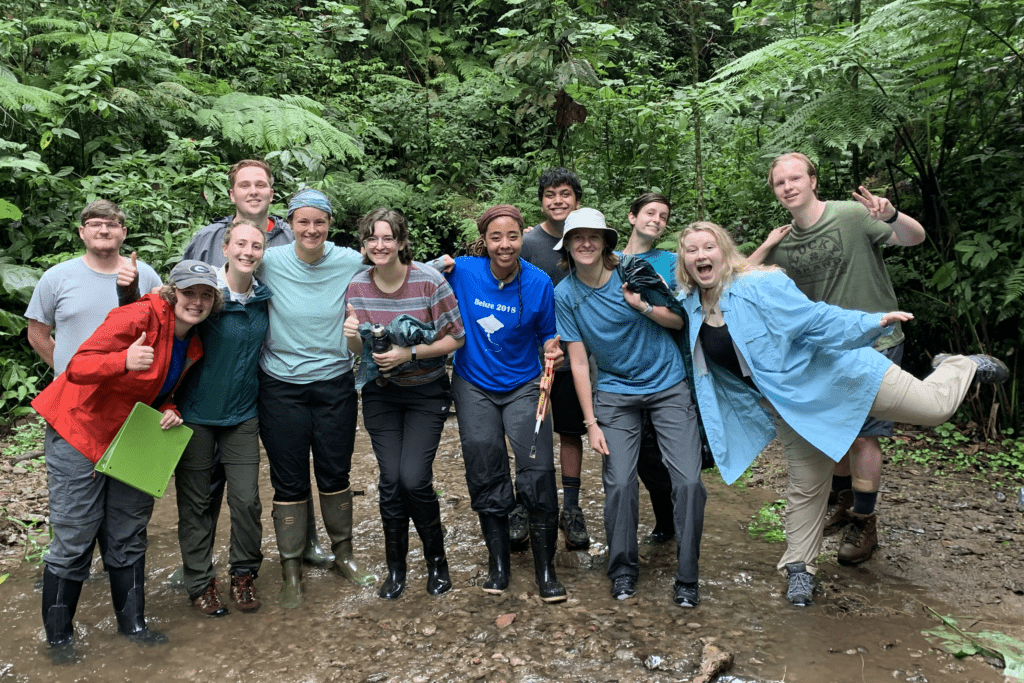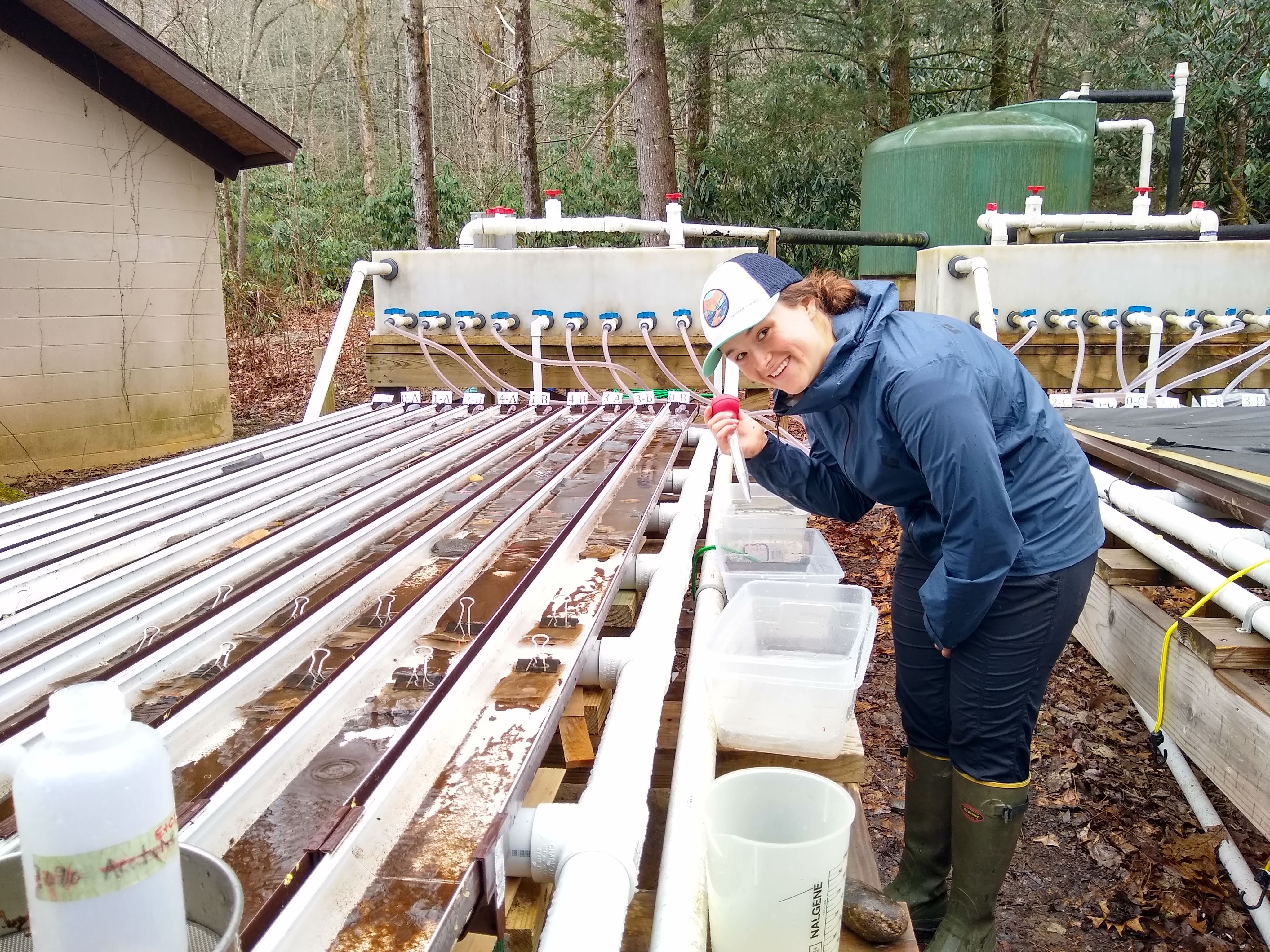During most of her undergraduate years, Carolyn Cummins thought she would become a veterinarian. But on May 9, she celebrated earning a Ph.D. from the Odum School of Ecology.
It was the culmination of a long journey that began in Colorado and ended in Athens with Cummins being hooded by her adviser, Amy Rosemond, UGA Foundation Professor in Ecology, and Craig Osenberg, graduate coordinator and UGA Athletic Association Professor in Ecology.
As an undergrad at Colorado State University, Cummins was on the pre-veterinary track for several years. But during her last year at CSU, her focus shifted to ecology, and she earned a B.S. in biological sciences. After finishing her bachelor’s degree, she worked as a field technician with Amanda Rugenski, lecturer and undergraduate coordinator at the Odum School.
“It was the connections I made after graduating from undergrad that led me toward UGA,” Cummins said.
Pandemic perseverance
Cummins’ first semester as a teaching assistant in the Odum School of Ecology coincided with the beginning of the COVID-19 pandemic.
“It was definitely challenging to motivate myself throughout COVID,” she said.
In addition, she had not done a significant amount of research as an undergraduate. Beginning her own research project at UGA proved challenging.
“The process of learning everything as you’re doing it, I think, is one of the hardest parts,” she said.
But Cummins persevered, developing three research projects for her dissertation research. The first two investigated the effects of temperature on leaf litter breakdown, carbon cycling and insect physiology.
For her third project, Cummins sampled and identified aquatic insects to study how insect communities change with temperature gradients. She received a 2023 John Spencer Research Grant for this work, an award that allowed her to hire undergraduate research assistants to aid in sorting the insect samples.
“A big focus of getting the Spencer Grant was trying to fund students to do that work, and they’ve been integral to the process of getting that done,” Cummins said.
This research was one of the final steps in completing her dissertation work, which examines temperature effects on southern Appalachian stream ecosystems. She successfully defended her dissertation, Temperature effects on headwater stream organic matter processing across scales from organisms to ecosystems, in April.
Cummins is passionate about the bug species she studies, and she strives to shed light on what we can learn from studying aquatic insect communities.
“[Aquatic insects] can also tell us a lot about the health of an ecosystem. Depending on what kinds of bugs are in a stream, you can learn a lot about what kind of stressors have been going on in the system,” she said.

The ideas Cummins investigates in her work are becoming more important as climate change impacts water systems globally. Once published, she aims for her results to be expanded upon and used by other freshwater ecologists, institutions and communities. In the future, Cummins hopes that her research will follow similar themes of how climate change stressors affect freshwater community dynamics.
Instructional integrity
Outside of her research, Cummins has worked as a teaching assistant for multiple ecology courses and labs. Teaching has become an important part of her time at UGA, and she’s grateful to teach about the topics she loves.

“I want my students to know how amazing the freshwater ecosystems are here in the Southeast and be proud of that,” she said.
Cummins is passionate about effective and inclusive undergraduate education, and she has pursued various on- and off-campus teaching roles during her time at UGA. She traveled to Costa Rica as the teaching assistant for the UGA Costa Rica Tropical Sciences Study Abroad Program in 2021, and she served as an instructor-of-record on the UGA Interdisciplinary Field Program in 2022. She also contributed to course design in the Odum School, helping to design and teach a new ecosystem ecology lab during the 2022-23 academic year. This spring, Cummins received the Graduate Student Excellence-in-Teaching Award from the UGA Graduate School.
With her Ph.D. completed, Cummins plans to pursue a career primarily focused on teaching and engaging students in research opportunities. She aims to encourage future students to pursue ecological research.
“I’m hoping to bridge research, teaching and undergraduate mentorship,” Cummins said.

